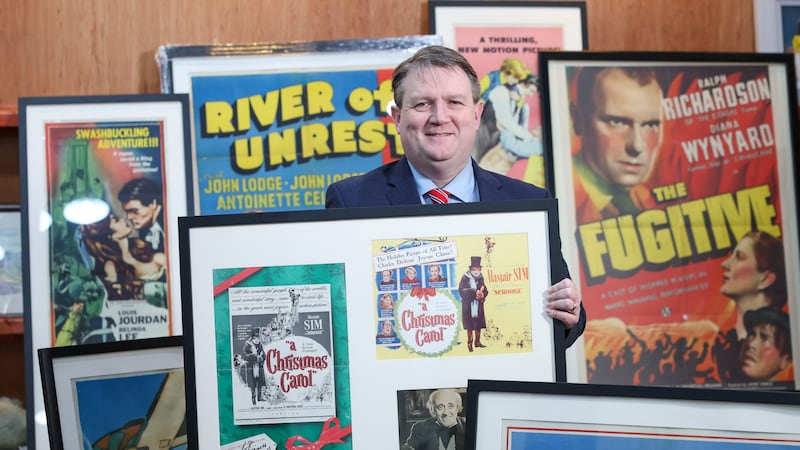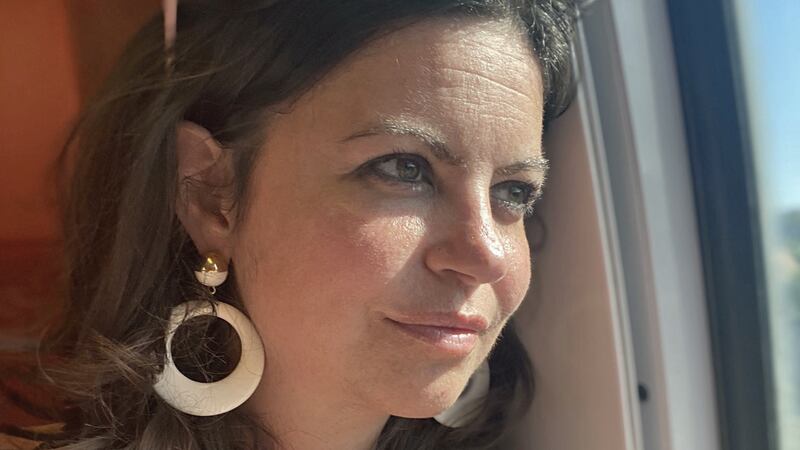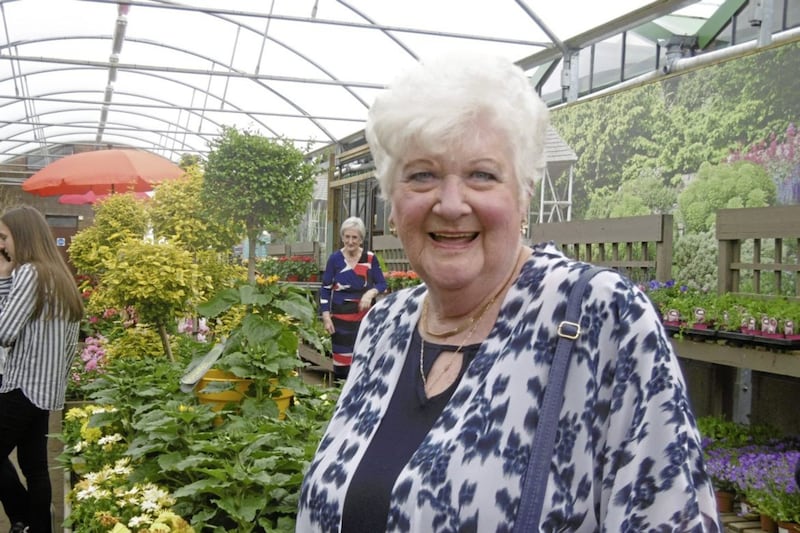BELFAST poet Padraic Fiacc tackled the Troubles head-on with unflinching style that left him an under-appreciated outsider in his home country.
However, Fiacc's work has long been appreciated overseas 20 of his best feature in The Harvard Book of Modern Irish Poetry and he is finally enjoying something of a renaissance in his native north.
Some 46 years after the publication of the Aosdana member's first collection, By The Black Stream, Fiacc has inspired Stormbird, a multi-discipline production from Multimedia Heritage to be staged at The MAC in Belfast next week.
Featuring Game of Thrones man Jonjo O'Neill as Fiacc, plus soprana Marion Jordan, tenor Matthew Quinn and poet/songwriter Gearoid McLochlann, Stormbird combines documentary film with live acting, verse and song to tell the poet's still unfolding tale "in his own words, images and poems".
Born Patrick Joseph O'Connor in 1924, Fiacc lived on Elizabeth Street off the Falls Road before moving with his staunchly republican mother Annie and grandparents (recently burned out of Lisburn) to the Markets area.
In 1929, the family emigrated to the US to join Fiacc's father in New York City: Bernard O'Connor had fled the sectarian strife of the Irish Civil War in 1927 to carve out a comfortable middle class existence running two grocery stores in Manhattan.
Disastrously, the 1929 Wall Street Crash struck just as Fiacc arrived, destroying his father's business and exposing the young 'Joe' to the harsh realities of the urban poor (and the challenges of living with an alcoholic parent) as the family relocated to the dicey Hell's Kitchen neighbourhood.
Such immigrant experiences coloured Fiacc's early work while he attended The High School of Commerce, before Irish Literary Revivalist Padraic Colum encouraged the teenager to mine his cultural roots in Ireland for inspiration and to take a pen name reflective of same ('fiacc' meaning raven).
After an abortive flirtation with the priesthood, the freshly rebranded poet, playwright and painter dodged US military service, flip-flopping between New York and Belfast from the mid-1940s to mid-1950s before eventually settling in Glengormley with his American wife, Nancy.
It was from there that Fiacc witnessed the fresh eruption of sectarian murder which inspired his uncompromisingly raw 1973 collection, Odour of Blood.
His editorship of the landmark 1974 anthology The Wearing of The Black found Fiacc bringing together the work of poets from both sides of the religious and political divide for a volume of verse vividly inspired by the north's carnage.
It included poetry by his young protege Gerry McLoughlin (20), who was brutally murdered just months later.
"It was very controversial," explains Belfast artist Michael McKernon, leading Fiacc revivalist and one of the Multimedia Heritage team behind Stormbird.
"He had 40 Protestant poems and 35 odd from nationalist writers, although when it was published Robert Fisk (then Belfast correspondent for The Times) complained that the book was unbalanced and that there should be more Protestant poets.
"I have a lovely letter which Joe wrote in reply to that accusation where he says that 'in a place where words can kill, words can also save lives'. It's an interesting look at his thinking of the time.
"But McLoughlin's murder was an awful experience that sent him into a spiral of depression."
While the poet eventually recovered, his reputation at home did not.
Nights In The Bad Place (1977), retrospective Selected Padraic Fiacc (1979) and Missa Terribilis (1986) were "barely noticed, or discounted as the work of a poet who had become unhinged by events in his native city" according to Professor Gerald Dawe, director of the Oscar Wilde Centre for Irish Writing at Trinity College Dublin and a former Fiacc protegee, who called for a wholesale reassessment of his former mentor's work in a 2005 lecture at Boston College.
Michael McKernon became friends with Fiacc after signing on to edit and illustrate 2006's retrospective SEA sixty years of poetry, going on to publish 2012's handsome collection of hand-written Fiacc originals In My Own Hand.
He filmed the candid interviews with Fiacc that form the backbone of Stormbird's visual element.
"It's been many years in the making," says McKernon. I've taken clips of myself and Joe visiting various locations over the last 10 or 15 years, talking to him extensively about all these different periods of his life.
"It's an amalgam of his poetry, images, film, interviews and some of his philosophy if you like.
"Joe is very very modest. He lives in a small flat on the Ormeau Road and within that room you could put his worldly possessions in one box. He has no material designs on the world his poetry is his entire life.
"He knows how brilliant he is as do the likes of Professor Gerald Dawe, Professor Jim Vincent of Robert Morris University in Pittsburgh and so on but in a way he sits back and likes to see this whole thing unfold.
"He was sidelined but now in the last few years he's been coming more into the mainstream.
"I think he feels his place is still to come."
:: Stormbird, Wednesday June 10, The MAC Theatre, Belfast, 7pm. Tickets 6 from Themaclive.com.








